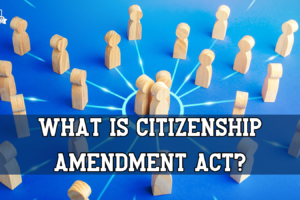
What Is The Link between Fundamental Rights and Fundamental Duties in India? | UPSC Polity
Fundamental Rights and Fundamental Duties are two crucial aspects of the Indian Constitution that work in tandem to ensure a balanced and harmonious society. While Fundamental Rights protect the citizens’ individual freedoms and liberties, Fundamental Duties emphasize their responsibilities towards the nation and society.
Fundamental Rights:
Fundamental Rights are enshrined in Part III of the Indian Constitution. They are essential rights granted to every citizen, ensuring their dignity, equality, and freedom. These rights include the right to equality, right to freedom of speech and expression, right to religion, right to education, and many others. Fundamental Rights act as safeguards against arbitrary actions by the state and provide individuals with the necessary protection to lead a meaningful and fulfilling life.
Fundamental Duties:
Fundamental Duties were added to the Constitution through the 42nd Amendment in 1976. They are a set of moral obligations that citizens are expected to fulfill towards the nation and society. These duties are not legally enforceable but are considered vital for the overall well-being and progress of the country.
Balancing Individual Rights with Social Responsibilities:
The link between Fundamental Rights and Fundamental Duties lies in striking a balance between individual rights and social responsibilities. While Fundamental Rights grant citizens certain liberties, Fundamental Duties ensure that these rights are exercised responsibly and in consideration of the welfare and harmony of society. It emphasizes that rights should not be misused or infringe upon the rights of others.
Also Read
- Financial Assets in India: An Overview of Investment Opportunities | UPSC Economy
- What Are The Effects of Ocean Currents? | UPSC Geography
Mutual Dependence:
Fundamental Rights and Fundamental Duties are mutually dependent on each other. The exercise of Fundamental Rights requires citizens to be aware of their responsibilities towards society. For instance, the right to freedom of speech and expression comes with the duty to use it responsibly, without inciting hatred or violence. Similarly, the right to education implies the duty to strive for personal and social development through knowledge and skills.
Strengthening Citizenship:
Fundamental Duties contribute to strengthening the idea of responsible citizenship. By fulfilling their duties, citizens actively participate in nation-building and contribute to the well-being of society. This strengthens the democratic fabric of the country and promotes a sense of belonging and social cohesion.
Fundamental Rights and Fundamental Duties are interconnected and essential pillars of the Indian Constitution. While Fundamental Rights protect individual freedoms, Fundamental Duties emphasize citizens’ responsibilities towards society. The link between the two ensures a balanced and harmonious society, where individual rights are exercised responsibly, and citizens actively contribute to the welfare and progress of the nation
Also Read



